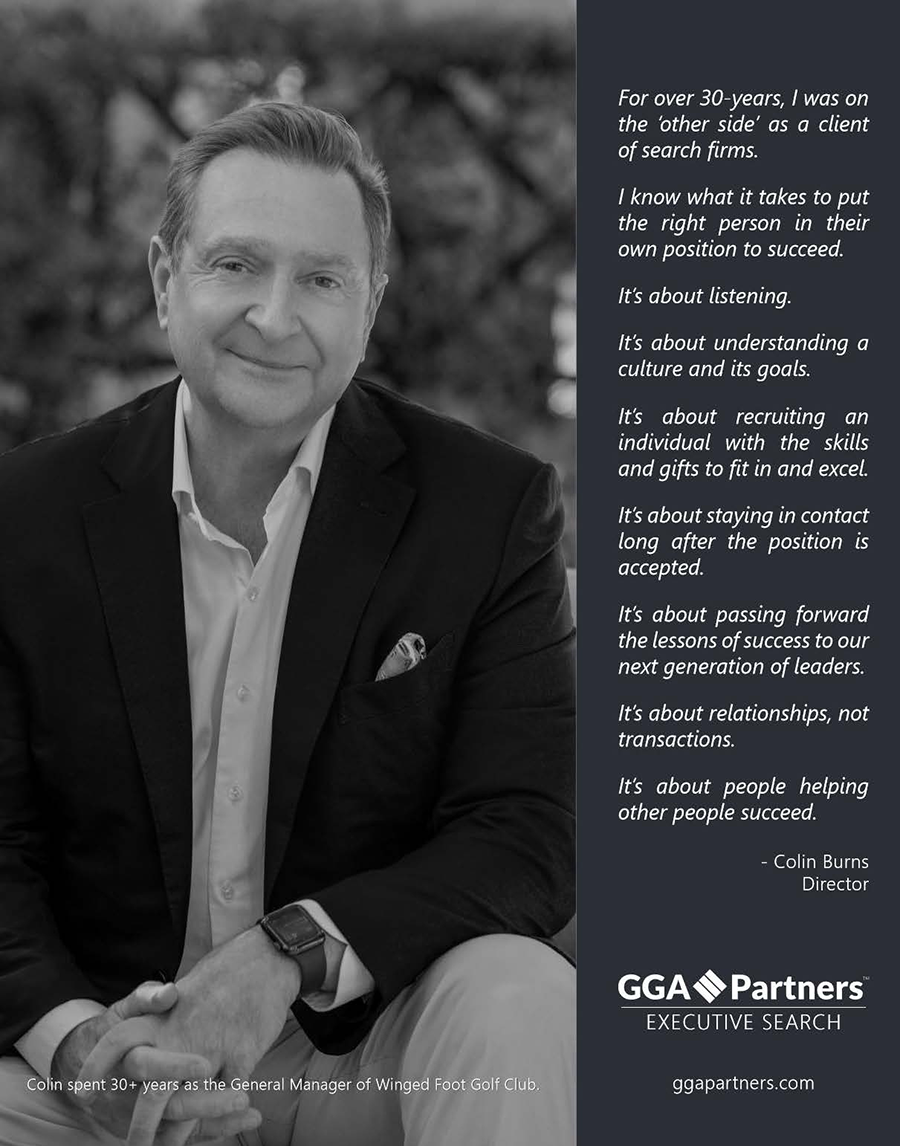
Lesson #9
of GGA Director Colin Burns’
31 years | 31 Lessons
features the lessons Colin learned about
interacting with members

Lesson #9
of GGA Director Colin Burns’
31 years | 31 Lessons
features the lessons Colin learned about
interacting with members
 Lesson #8
Lesson #8
of GGA Director Colin Burns’
31 years | 31 Lessons
features the lessons Colin learned about
Financial Stewardship

Lesson #6
of GGA Director Colin Burns’
31 years | 31 Lessons speaks to
how to provide inclusive hospitality

The GGA Partners 31 Years | 31 Lessons featuring Colin Burns continues with explaining how coming from a place of goodness will be remembered.

GGA Director Colin Burns, CCM, brings his print ad to life in a new video highlighting his beliefs about the role of an executive search consultant.

GGA Director Colin Burns, CCM, shares his Winged Foot Golf Club lessons learned about the member experience.

Managing a private club is not an easy task. It requires knowledge, stamina, fortitude, patience and a sense of humor. With each new year comes new challenges, opportunities and lessons to learn.
When GGA Director Colin Burns, CCM, joined the firm, he shared the lessons he learned over a lifetime in the hospitality industry, as an advocate for club management and his three decades as the general manager of Winged Foot Golf Club with our team. In hearing those lessons, we were reminded how success comes from doing the right thing every day.
We asked Colin to record his common sense and professional advise for us to share with you. Today we present the first of Colin’s 31 Years | 31 Lessons videos. We will be releasing all 31 on our LinkedIn page over the next several months in the hope you find these lessons helpful as you navigate your own path to success as a leader in our industry.